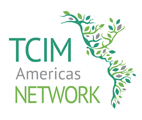Strengthening health
This section brings Health Proposals, Strategies, and Models aimed to strengthen and promote health from the perspective of Traditional, Complementary, and Integrative Medicine, and related Therapies and Practices (TCIM).
Health, as for the WHO definition, is a state of complete physical, mental, and social well-being—and not merely the absence of disease or disease. For this reason, it is important to take into consideration the integrative approach adopted by TCIM to strengthen health (1).
Most medical systems and therapies of the TCIM group aim, in their conceptual base, at guide individuals, families, and communities in the inclusion of routine strategies that can help them strengthen and keep their health and prevent diseases. Some of the different strategies suggested include, in general, healthier eating habits, practicing physical exercises, and changes in family, work, and environmental relationships that can lead to emotional and mental wellbeing (2)(3)(4).
All these strategies are associated to paradigms that are not positivist.
To mention some examples that will be expanded in this section, the Traditional Chinese Medicine (TCM) proposes a diet based on the characteristics of each food, such as its quality as cold/hot, flavor, and color. Additionally, it will propose a “diet” to strengthen patients’ health and prevent diseases according to each individual and their constitution, as well as the time and season of the year. The exercises suggested by TCM are Taiichi and Qi-Gong, as well as meditation, suitable management of emotions, and contemplative practices of the cycles of nature, working in tune with the environment to guarantee emotional and mental wellbeing (5)(6).
Studies and research show the effectiveness of some of these strategies in the contexts of strengthening and promoting health and preventing diseases, as well as in management of the different pathologies (7)(8).
Sometimes, when providing healthcare, both in western medical models and in complementary therapeutic clinical models, care is directed to solving the diseases patients consult for, which can be circumstantial. That is why it is necessary to remember the implementation of strategies towards strengthening health and wellbeing (9)(10).
It is important to highlight the TCIM proposals to strengthen health and create health models that can approach the intercultural perspective and facilitate the integration of these strategies to guarantee the development of full programs centered on people, families, communities, and that are inclusive and responsible about health (2).
TCIM models and strategies to strengthen health include:
- Healthy eating models
- Physical activity models
- Models to strengthen emotional and mental status
Themes
- OMS. Organización Mundial de la Salud. Constitución de la OMS: principios [Internet]. WHO World Health Organization; 2016. Available from: http://www.who.int/about/mission/es/.
- Hawk C, Adams J, Hartvigsen J. The Role of CAM in Public Health, Disease Prevention, and Health Promotion. Evidence-Based Complement Altern Med [Internet]. 2015 Dec 27 [cited 2018 Feb 28];2015:1–2. Available from: http://www.hindawi.com/journals/ecam/2015/528487/.
- Hill FJ. Complementary and alternative medicine: the next generation of health promotion? Health Promot Int [Internet]. 2003 Sep [cited 2018 Feb 28];18(3):265–72. Available from: http://www.ncbi.nlm.nih.gov/pubmed/12920147.
- Long AF. The potential of complementary and alternative medicine in promoting well-being and critical health literacy: a prospective, observational study of shiatsu. BMC Complement Altern Med [Internet]. 2009 Dec 18 [cited 2018 Feb 28];9(1):19. Available from: http://bmccomplementalternmed.biomedcentral.com/articles/10.1186/1472-6882-9-19.
- Koithan M, Wright C. Promoting Optimal Health with Traditional Chinese Medicine. J Nurse Pract [Internet]. 2010 Apr 1 [cited 2018 Feb 28];6(4):306–7. Available from: http://www.ncbi.nlm.nih.gov/pubmed/20689727.
- Kok BE, Coffey KA, Cohn MA, Catalino LI, Vacharkulksemsuk T, Algoe SB, et al. How Positive Emotions Build Physical Health. Psychol Sci [Internet]. 2013 Jul 6 [cited 2018 Feb 28];24(7):1123–32. Available from: http://journals.sagepub.com/doi/10.1177/0956797612470827.
- Jahnke R, Larkey L, Rogers C, Etnier J, Lin F. A comprehensive review of Health benefits of Qigong and Tai chi. Am J Health Promot [Internet]. 2010 [cited 2018 Feb 28];24(6):e1–25. Available from: http://www.ncbi.nlm.nih.gov/pubmed/20594090.
- Goyal M, Singh S, Sibinga EMS, Gould NF, Rowland-Seymour A, Sharma R, et al. Meditation Programs for Psychological Stress and Well-being. JAMA Intern Med [Internet]. 2014 Mar 1 [cited 2018 Feb 28];174(3):357. Available from: http://archinte.jamanetwork.com/article.aspx?doi=10.1001/jamainternmed.2013.13018.
- Fritts M, Calvo A, Jonas W, Bezold C. Integrative Medicine and Health Disparities: A Scoping Meeting. Explor J Sci Heal [Internet]. 2009 Jul 1 [cited 2018 Feb 28];5(4):228–41. Available from: http://linkinghub.elsevier.com/retrieve/pii/S1550830709001700.
- Barrett B, Marchand L, Scheder J, Appelbaum D, Plane MB, Blustein J, et al. What complementary and alternative medicine practitioners say about health and health care. Ann Fam Med [Internet]. 2004 May 1 [cited 2018 Feb 28];2(3):253–9. Available from: http://www.ncbi.nlm.nih.gov/pubmed/15209203.


